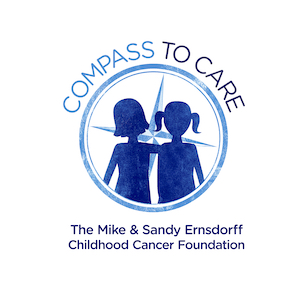Our Programs
One in five children diagnosed with cancer lives in poverty.
While many of those children are living in poverty at the time of diagnosis, some cross into a poverty profile as a result of cancer-related financial toxicity (CRFT). CRFT refers to the detrimental effects of the excess financial strain caused by the diagnosis of cancer.
For these children, poverty is associated with higher rates of relapse and decreased overall survival.
How does poverty impact a child’s survival?
→ Poverty leads to transportation barriers.
→ Transportation barriers lead to missed and delayed appointments.
→ Missed and delayed appointments lead to higher rates of relapse and lower survival rates.
COMPASS TO CARE’S LIFE-SAVING SOLUTION
Compass to Care is proud to have three distinct nationwide non emergency medical transportation (NEMT) solutions that directly and immediately remove the transportation barriers to health care access for children with cancer who are living in poverty.
These solutions are ACCESS LIFE, CARE & BACK™, and FLIGHTS FOR HOPE.
 ACCESS LIFE
ACCESS LIFE
Compass to Care’s ACCESS LIFE program covers 100% of all transportation expenses for our beneficiary children and families, including gasoline, parking fees, and train fare.
![]()
CARE & BACK™
Compass to Care’s CARE & BACK™ program utilizes the Uber and Lyft transportation networks to secure safe, reliable, and readily-available transportation for families without access to a vehicle.
 FLIGHTS FOR HOPE
FLIGHTS FOR HOPE
Compass to Care’s Flights for Hope program fully funds airfare, lodging, and ground transportation so children living in poverty can access distant clinical trials or other life-saving cancer treatment.
Compass to Care is proud to be funding equitable access to childhood cancer treatment to help save lives.

OUR IMPACT- EMPOWERING PARENTS, SAVING LIVES
Compass to Care empowers families, enrolled in our programs, to make timely decisions about getting their children to cancer care by removing transportation barriers. In addition, these families:
- Do not have to spend their own money on transportation
- Do not need a bank account or credit card to fund their travel
- Do not need a vehicle to get their children to treatment
- Can eliminate missed appointments due to transportation barriers
- Can choose to enroll their child in a clinical trial at a distant medical center
- Feel empowered to make decisions about getting their children to cancer care
- Keep hope of survival in the realm of possibility for their precious children
